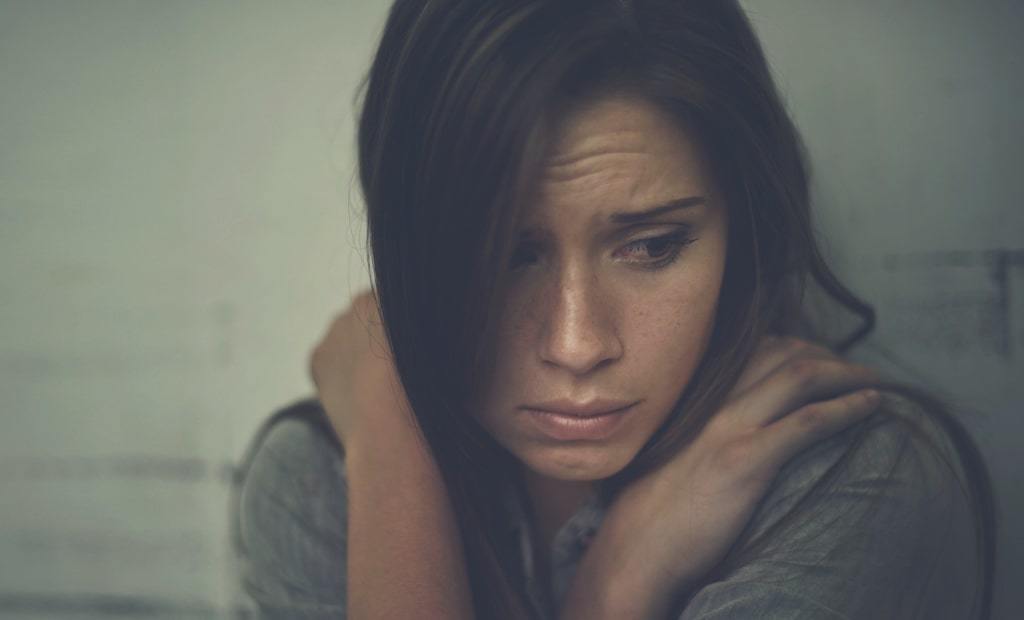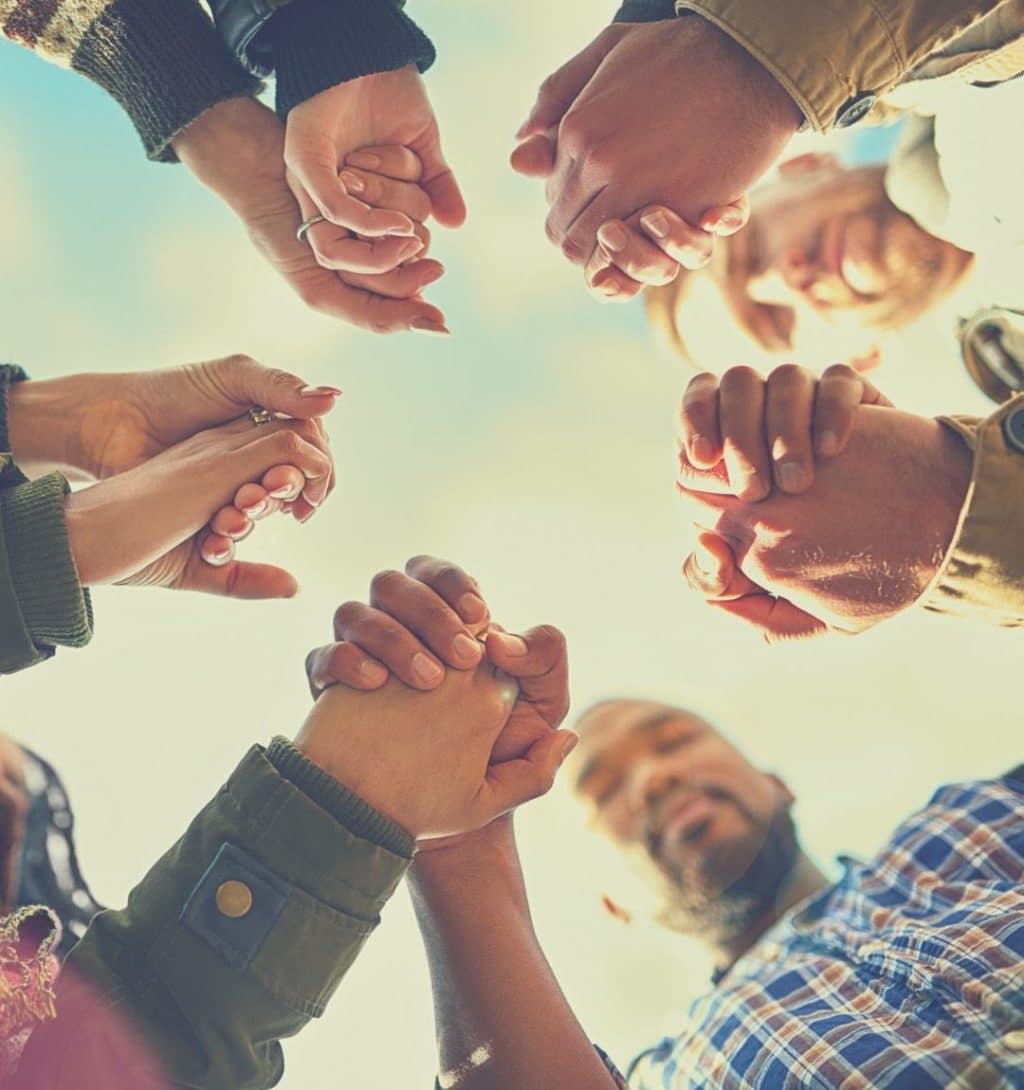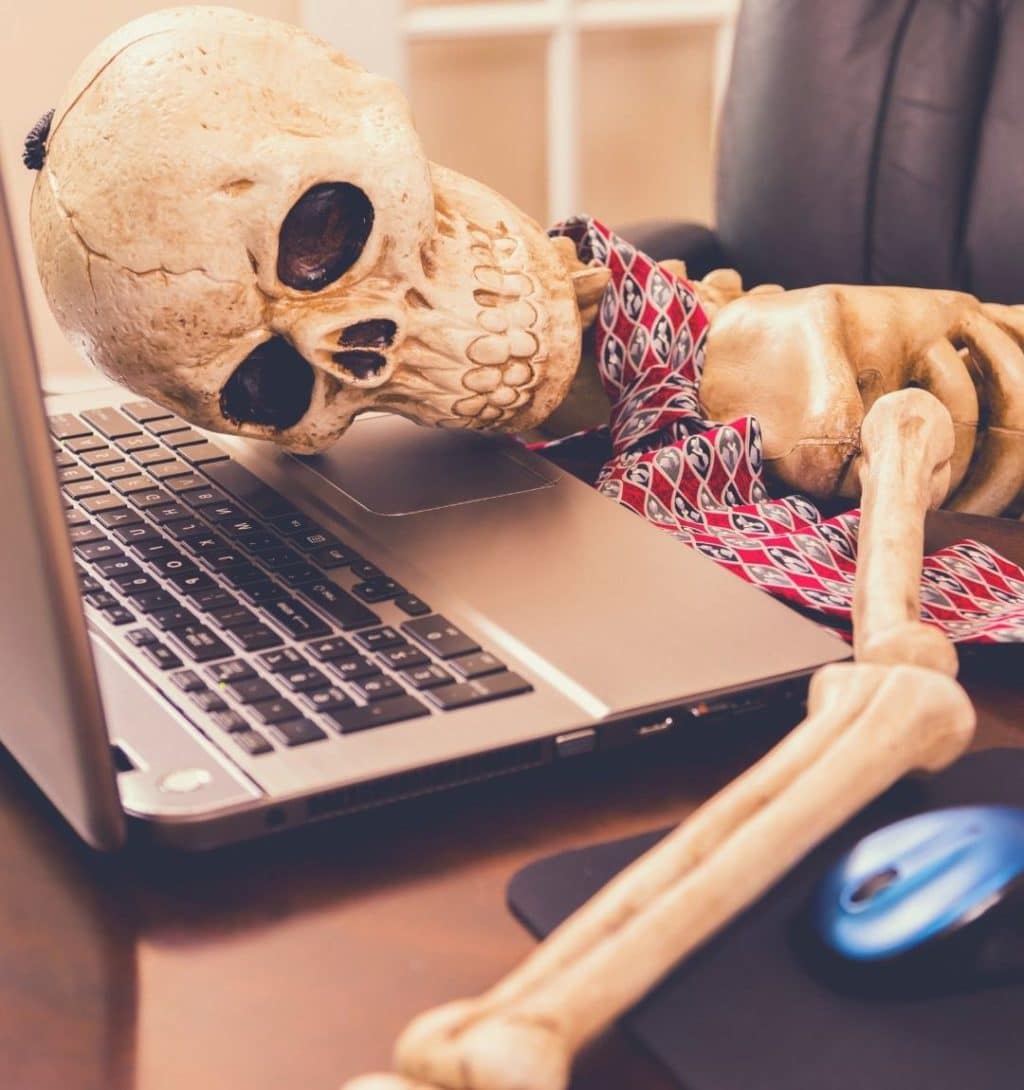There might be affiliate links on this page, which means we get a small commission of anything you buy. As an Amazon Associate we earn from qualifying purchases. Please do your own research before making any online purchase.
Do you feel alone, even when you are surrounded by people?
You are not alone in feeling lonely. According to a study from the loneliness experts at the University of Chicago, over half of all Americans feel lonely.
That is a lot of loneliness out there. Many people feel alone.
So what causes those feelings of being alone?
In this article, we will answer this question and so much more.
Sidebar: If you'd like to not feel alone, one thing you can do is to proactively work on your happiness. To learn more, I recommend checking out this book that has 53 specific happiness habits you can incorporate into your life.
Links to Related Articles & Research
1. Who Gets Lonely?
40 to 60 percent of people feel lonely at some point in their lives, so you are not alone in feeling alone.
Here are some facts on people who feel lonely.
Married people are more lonely than average.
According to one study on loneliness, married people are around 60% likely to feel loneliness. Specifically when it comes to older married couples.
This seems counter-intuitive. One would think that having a life partner would decrease feelings of loneliness. But it doesn’t seem to work that way. Just having someone available does not mean you will not feel lonely.
Loneliness does not scale with number of friends. It all depends on how you feel about the value of your relationships.
Extroverts get lonely too.
I consider myself to be an introvert. But a little time alone does not make me lonely. It recharges my batteries.
Many people have the misconception that all people who are lonely are introverts who hide away from society. They shun others and therefore never develop the connections that would help to stave off loneliness.
This simply isn’t true. Even the most outgoing extrovert can sometimes feel lonely. Although extroverts may not spend as much time alone, the fact that they thrive in the company of others means that they may experience loneliness far more quickly when away from other people than their introverted counterparts.
Loneliness does not scale with number of friends.
Loneliness is not a competition where you have X number of friends and don’t feel lonely. Loneliness is subjective and varies for every person.
It all depends on how you feel about the value of your relationships.
Lawyers, engineers, and scientists are the loneliest professions.
A Harvard study concluded that being a lawyer is the loneliest profession, followed closely by scientists and engineers. It seems that these great and lucrative professions also require a lot of time being isolated from others, and may not be the best careers for those who suffer from loneliness and depression.
Instead, those who struggle with depression and loneliness may want a job that has a high degree of social interaction as part of its day-to-day job description. Social work, marketing, and sales are noted as being the least lonely professions.
Who you are outside of work makes a big difference to loneliness.
A lot of factors in your private life affect loneliness, including:
- The amount of people you know
- The intensity of your relationships
- Whether you have children
- Religious beliefs
- Whether you are married, separated, divorced, or single
- Exercise habits
- Your attitude
- Expressing gratitude
Links to Related Articles & Research
- Psychology Today
- An examination of the relation of individual difference variables to loneliness
- Introverts and the loneliness loop
- Loneliest Workers Study
- Scientists and engineers among loneliest
- Work Loneliness and Employee Performance
- Study Finds Half of Americans Feel Lonely
- Cigna Loneliness Study
- Happiness Is not Hedonism
2. What Are the Main Causes of Feeling Alone?
Loneliness is not about being alone. Any introvert can tell you it is absolutely possible to be happy even when alone.
Loneliness is not due to solitude. It is a state of mind. People become lonely because they crave human contact, but their mindset leaves them unable to connect with those around them.
People who are lonely feel isolated. They may be in a crowd of people, but they feel that they are unable to connect with others.
Let feelings of loneliness go without dealing with them for long enough, and it can spiral out of control to full-blown depression. And as this post points out, depression is on the rise.
Links to Related Articles & Research
3. Can You Die From Being Lonely?
You might think loneliness can’t kill you, but you would be wrong.
A recent study shows that loneliness kills nearly twice as many people as obesity (when including both direct and indirect effects of obesity).
Directly, loneliness can kill in the form of depression and suicide. People feel so isolated from others that they may feel the only way to end the pain is to end their lives.
Indirectly loneliness kills due to many negative effects on health (more details about this in the next section).
Experts argue that the effects of loneliness can have the same negative impact on health as smoking 14 cigarettes a day.
That is a pretty sobering figure. Loneliness, isolation, and the resulting depression are nothing to mess with.
Loneliness can kill in the form of depression and suicide. People feel so isolated from others that they may feel the only way to end the pain is to end their lives.
Links to Related Articles & Research
4. How Does Being Lonely Affect Your Health?
Loneliness has a definite impact on health and well-being. It increases stress, makes you not want to do anything, and encourages you to overeat and make poor life decisions. All these small results pile up and result in some serious health issues.
Let's take a look at ways loneliness negatively impacts health.
Loneliness increases the likelihood of:
- High blood pressure
- Getting the flu
- Inflammation
- Periodontitis
- Alzheimer's
- Some forms of cancer
- Rheumatoid arthritis
- Cardiovascular disease.
Links to Related Articles & Research
- Loneliness may warp genes and immune system
- Study on Loneliness and the Flu
- Sleep and Loneliness survey
- What loneliness does to the human body
- How Loneliness Affects Health
5. Does Social Media Make Us Feel Alone?
One of the newest forms of connection (and isolation) is social media. It gives you the chance to connect with people regardless of distance, but it can also serve as a barrier to making real connections with people in the real world.
Social media is meant to connect us. At its best, it can give a voice to those who feel voiceless. It can connect us with other people who share our unique perspectives.
But some people fear that social media is more isolating. They believe that the lack of human interactions means you will become more isolated and alone. The likes, tweets, follows, and pins are truly addictive. They lead to a release of dopamine into the system, similar to that of gambling. This can cause people to stay online longer than they should, perhaps using social media as a substitute for human interaction.
The negative effects of isolation may be especially serious when it comes to adolescents and social media. According to a 2018 study, nearly every major social media platform had a negative impact on adolescents’ psychological well-being.
But the data is not entirely clear. Another study found the “loneliness” score to be rather close when comparing those use social media frequently to those who rarely or never use it: 43 is the score for those who do not use social media, vs 41 for those who often use social media.
So what’s the answer? Is social media good or bad for your loneliness?
It depends.
There is nothing inherently wrong with social media, but overusing it or only using it for meaningless interactions might increase loneliness.
Use social media in moderation. Make sure you are not avoiding spending time with people in the “real world” to hang out online.
6. How to Use the Internet to Avoid Loneliness
Use social media as a community tool, and join communities that speak to your specific interest. Reach out to others in these groups and try to build real connections. Try to use the internet to organize real-world events. Don’t let it become a tool for isolation, but instead one for connection.
Avoid the feelings of envy associated with seeing / reading other people’s posts. People often put up a front on social media, and everything is not always as rosy as it may seem.
Another suggestion is to not follow your “ex” on social media. This may make you feel jealous and work to increase your feelings of isolation and depression.
Use social media in moderation. Make sure you are not avoiding spending time with people in the “real world” to hang out online. Social media time should not impact your exercise, sleep, eating well, or self-care. If you find it impacting these basic needs, you may want to take a social media “timeout.”
Links to Related Articles & Research
- Stop blaming Facebook for loneliness
- Social media-induced depression
- Does social media make us more lonely?
- Does social media cause depression?
7. What Can You Do About Loneliness?
This is the most important part of this post. It is the part where I talk about what you can do about feeling alone
It is all about taking action.
If you just read this list and think, “that’s nice,” nothing will change with your feelings of loneliness. But if you take action on as many of these items as you can when you are feeling lonely, your feelings of isolation will surely begin to dissipate.
You do not need to feel lonely anymore!
Action steps to stop feeling alone:
- Get out of your house (this is a big one!).
- Realize you are not alone in your loneliness.
- Help someone else.
- Get a pet.
- Get more sleep.
- Talk about your work with others.
- Connect with a friend.
- Attend Meetups.
- Don’t wait for someone else to call or email—contact them first.
- Try not to eat alone at work.
- Strike up random conversations.
- Be creative: draw, write, color, or build something.
- Visualize a “happy place.”
- Connect with someone else who is lonely.
- Remember that tomorrow is another chance to have a better day.
- Sing out loud!
- Visit new places.
- Volunteer.
- Compliment others.
- Get involved in a sport / join a gym.
- Talk to your neighbors.
- Attend after-school events.
- Take your dog to the beach/park/lake.
- Go to restaurants with “community” tables.
- Hang out at a museum.
- Take a wine tour.
- Take a beer tour.
- Join a dance class.
- Smile. Just do it!
- Don’t work so hard that you ignore your personal life.
- Take an art class.
- Take a cooking class.
- Join a book club.
- Take a hike.
- Get a “fun” part-time job.
- Read a book or do work at a coffee house.
- Get a new hobby.
- Remember the past and loved ones with old photos.
- Start a journal.
To find out more details about the action steps to stop feeling alone, check out this full article:
This post takes this list of steps to try to curb your feelings of loneliness and expands on the ideas.
The common denominator for most of the above-listed actions is to get out and meet new people.
When you increase the number of people you know, you increase your chances of finding those true friends who matter, and who can help you out when you feel a bit lonely.
Take action – go hiking, go swimming, visit new places – when you are feeling lonely and gradually, you'll notice your feelings of isolation will begin to dissipate.
Links to Related Articles & Research
- Science of Loneliness
- Creative things to do when feeling lonely
- Religious less likely to feel isolated
- Lonely at work
- Sleep and loneliness
- 30 ways to meet new people
- 25 Creative things to do when lonely
- 25 ways to chase away the blues
- Guide to Depression Resources
8. What to Do If Your Loneliness and Depression Are Out of Control
If you try many of these steps and it does not help to reduce your feelings of isolation and loneliness, you may want to get some professional help.
Do not feel there is anything wrong with this. There isn’t.
Many people need a little therapy to help them realize the underlying psychological reasons they have a great amount of loneliness, depression, and anxiety. This is perfectly normal.
If you need professional help, please take the steps to get it.
If you feel suicidal, please immediately call the National Suicide Prevention Hotline at
1-800-273-8255
Other phone numbers to get help with your loneliness and depression immediately include:
- Samaritans 24-hour Crisis Hotline (open 24/7): 212-673-3000
- United Way Helpline (which can help you find a therapist, health care, or basic necessities): 800-233-4357
Websites to find help with loneliness and depression:
- National Alliance on Mental Illness 1-800-950-NAMI (1-800-950-6264)
- Anxiety and Depression Association of America1-240-485-1001
- American Psychological Association 1-800-374-2721
- Depression and Bipolar Support Alliance1-800-826-3632
- National Institute of Mental Health
You Are Not Alone in Feeling Alone
Hopefully this post has given you a fairly good understanding of why you may feel lonely, alone, and isolated. More importantly, I sincerely hope that it has encouraged you to take some action to change you situation if you feel isolated and alone. No one can help you if they don’t know how you feel.
You are not alone in feeling alone. If you feel overwhelmed and nothing else helps, please call some of the numbers above to get some professional help. Finally, why not reach out to others and share this post on your favorite social media platform. If everyone reached out to others with the steps in this post, no one would need to feel lonely again.
Finally, if you'd like to not feel alone, one thing you can do is to proactively work on your happiness. To learn more, I recommend checking out this book that has 53 specific happiness habits you can incorporate into your life.





